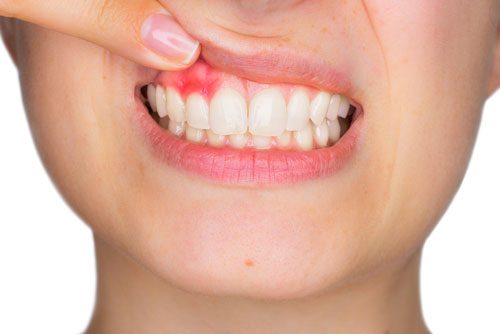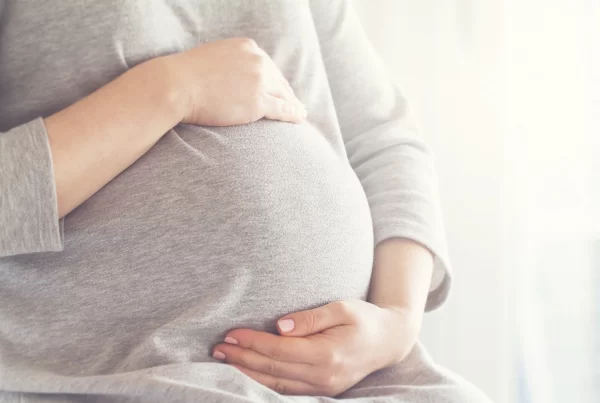Suppose I was given a dollar for every time someone told me “I always had great teeth like yours, my parents even paid for braces to make sure they were nice and straight, but all that changed after I had children….. then my teeth started to get loose and rot.”, I believe I may be halfway to my first million. I have worked as a dentist in several countries and across a variety of demographics, but this belief never seems to differ. Is it true or just another age-old misconception?
Let me be clear here, I am under no illusions that kids can sometimes suck the life out of their parents, but it may be quite unfair to pronounce them guilty of causing their mothers to lose their teeth (what happened to having a fair trial?).
On any given day in practice, when a woman who is pregnant arrives for her dental appointment, there is always palpable anxiety relating to the dental visit, and a myriad of questions about the possible side-effects of dental treatment on the fetus, as well as other concerns like bleeding gums, decay or bad breath.
Intrigued by the frequency of these questions and motivated by the incessant questioning from all the expectant moms who I call friends, I decided to explore the subject of oral health during pregnancy, and attempt to provide some information and answers to the best of my ability.
“I have started to notice that my gums are bleeding more frequently.”
Gingivitis (gum inflammation) can present as swelling and bleeding of gums; it is usually more noticeable during brushing and flossing.
During pregnancy, the gum problems that occur are not due to an increased quantity of plaque (which really is a collection of millions of bacteria), but is actually the result of the body’s more exaggerated response to plaque due to increased hormone levels.
In severe cases, undiagnosed or untreated gum disease can result in worsening chronic gum infection and eventually lead to tooth loss.
Some expectant mothers may also notice a localized enlargement of the gum that bleeds easily (termed pregnancy epulis or pyogenic granuloma). The treatment for this is usually additional professional cleaning; in rare cases, excision may be required.

“My teeth feel more sensitive than usual.”
Many women experience gastric reflux and morning sickness as well as have hyper-sensitized gag reflex during the course of their pregnancy. Gastric contents from vomiting can damage teeth by coating teeth with strong stomach acids; these acids erode the outer surface of teeth and can increase tooth sensitivity as well as elevate risk of tooth decay.
Avoid brushing your teeth immediately after vomiting, as tooth structure softened by acid are more susceptible to damage at this time. Rinse your mouth thoroughly with tap water after vomiting; Singapore’s tap water is fluoridated and may mitigate the harmful effects of stomach acids on teeth.
Subsequently, you should only brush your teeth after at least an hour, preferably with a fluoride-containing toothpaste; specialized toothpaste developed for people with sensitive teeth have also shown to be useful.
“I can’t brush my teeth as every time my toothbrush goes to the back, I gag or feel like throwing up.”
Some helpful tips:
- Use a toothbrush with a smaller head; consider using a child-sized toothbrush.
- Take your time and use slow brushing action; also concentrate on breathing.
- You can also try to distract yourself while brushing your teeth (e.g. with TV, music, etc.).
- If the taste of toothpaste provokes the gag reflex, try switching brands, or brush without toothpaste and then follow up with fluoridated mouth rinse or tooth mousse. Return to using fluoridated toothpaste as soon as you can.
“I have cravings for sweet foods all the time.”
Some pregnant women experience an increased desire for sugary foods during the course of their pregnancy, and this may result in an elevated risk of tooth decay.

Some helpful tips:
- Rinse mouth thoroughly with tap water after sugary exposure.
- Try low sugar products or use sugar substitutes.
- Replace foods containing added sugars (e.g. confectionery, soft drinks) with ones that contain natural sugars (e.g. fruits, honey).
- Have fresh fruits rather than dried fruits.
- Try to limit consumption of sugary foods to mealtimes.
- Attempt to increase intake of teeth protective foods (e.g. hard cheese, milk, yoghurt, etc.).
“I can’t hold my food down, so I have to snack throughout the day.”
Try to avoid processed foods with large quantities of added sugar. Instead, snack on fresh fruits or nuts. Remember to drink plenty of water or milk and rinse out thoroughly with tap water after snacking.
“I am tired all the time and brushing my teeth is just too much effort.”
Try sitting down to brush your teeth. Investing in an electric toothbrush may take the hard work out of brushing your teeth.
“Is it true that my dental health can affect my baby?”

There is ample evidence to demonstrate that pregnant mothers with gum disease are at higher risk of having premature babies with low birth weight; babies born prematurely are also at higher risk for health conditions including cerebral palsy and problems with eyesight and hearing.
Appropriate dental care for the expectant mother may reduce risk of premature birth.
“Is it safe to have dental treatment when I am pregnant?”
Dental treatment is generally safe for both the expectant mum and the fetus. The general recommendation is that non-emergent dental work should be planned for after the first trimester. Where there is a dental emergency (e.g. toothache, swelling, etc.), dental treatment can be provided safely at any stage of the pregnancy.
“Can I get x-rays taken when I am pregnant? Will it harm my baby?”
Tell your dentist if you are pregnant. Radiographs can be delayed until after birth of your baby. However, if dental x-rays are unavoidable, rest assured that the dentist will always take the necessary precautions to ensure safety (i.e. using a lead apron, making sure the lowest x-ray dosage is used for the appropriate situation) for all patients.
“If I am planning to start a family, why should the dentist be involved?”
Demands of pregnancy can lead to particular dental problems in some women, but you are less likely to have dental problems during pregnancy if you already have good oral hygiene habits before falling pregnant.
With proper oral hygiene habits at home (i.e. brushing twice a day with a fluoride-containing toothpaste, flossing regularly between your teeth) and professional help from your dentist, your teeth and gums should stay healthy during pregnancy. Regular visits to the dentist are encouraged.

If you are planning to start a family and aware that you have some problems with your teeth or gums, please see your dentist as soon as you can. It is more convenient (and certainly less stressful) to have dental procedures done before you conceive.
Without a doubt, it should be pretty clear by now that kids do not cause their mothers’ dental health to deteriorate nor do they accelerate the unfortunate demise of teeth. The real culprit is hormones, fatigue and just general lack of good oral hygiene habits or knowledge. I rest my case.
Need dental help? Book an appointment with our friendly dentists from The Dental Studio to check on your oral health during pregnancy.
Dr Tan’s Place of Practice




